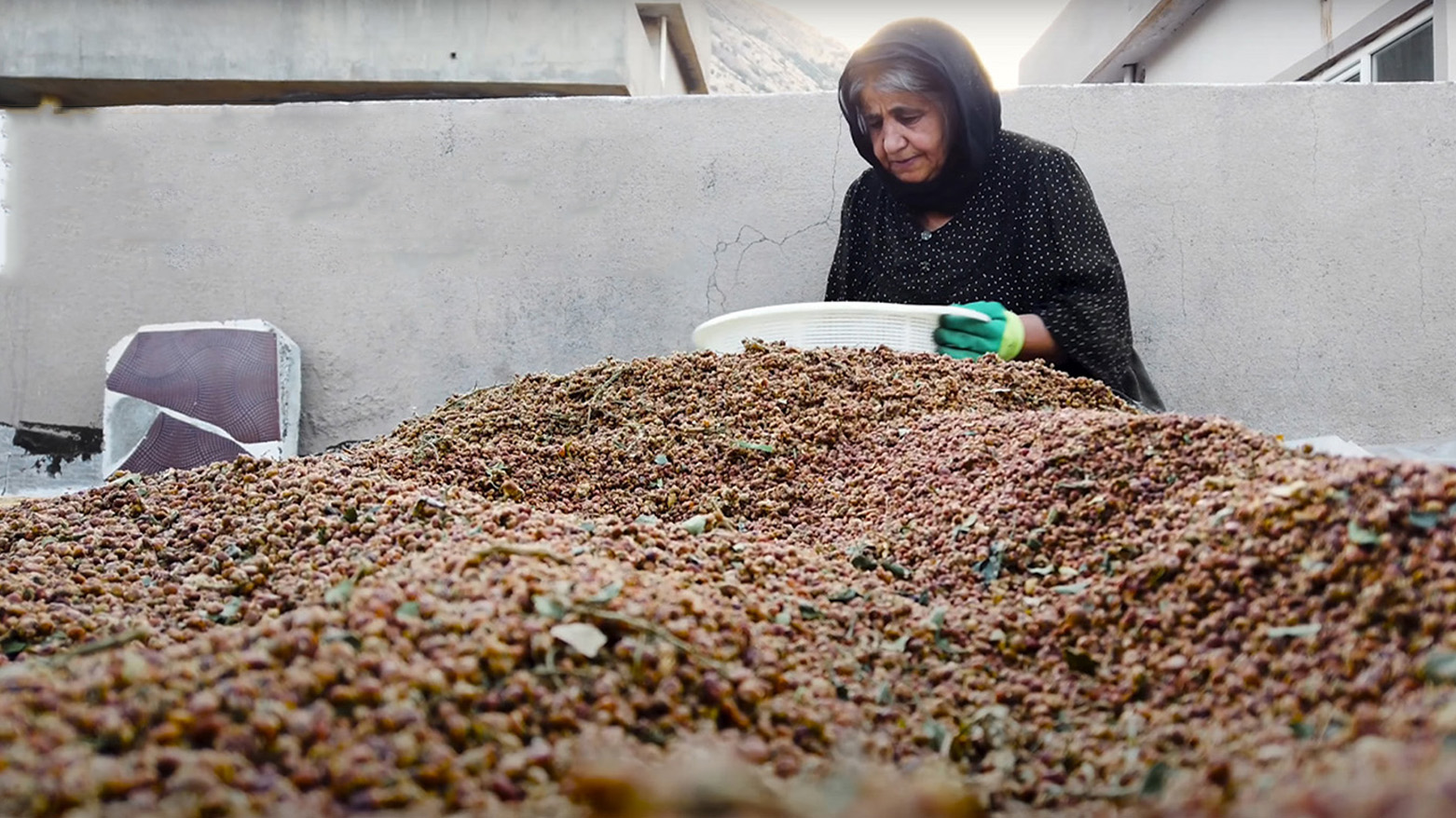Kurdistan Exports 45 Tons of Akre Sumac to Türkiye
Kurdistan exports 45 tons of Akre sumac to Türkiye, with traders noting high quality and competitive prices. The shipment is part of the KRG's broader agricultural export strategy to diversify beyond oil.

ERBIL (Kurdistan24) – Traders from the Akre district announced on Saturday that 45 tons of locally grown sumac have been prepared for export to Türkiye, marking a significant step in the Kurdistan Region’s ongoing efforts to expand the reach of its agricultural products to foreign markets.
Masoud Mohammed Ali, a local trader from Akre, confirmed to Kurdistan24 that his company has prepared 45 tons of red sumac, noting its high quality and competitive value in international markets.
“This sumac is red and of excellent quality, priced between 5,000 and 5,700 Iraqi dinars per kilogram,” he said. “If it had not been exported to Türkiye, prices might not have risen to this level.”
He added that just days ago, eight tons had already been exported to Türkiye, with the latest shipment of 45 tons set to follow in the coming days. According to him, the process will continue steadily until the rainy season.
Ali underlined the economic benefit for local farmers: “Exporting sumac brings significant profit to growers. Farmers in our area pay special attention to cultivating sumac because it has a good price and a strong market. Without these export opportunities, they may not have prioritized it as much.”
He recalled that last year, when no exports were made to Türkiye, prices dropped to 3,000–3,500 dinars per kilogram, compared to current levels exceeding 4,250 dinars in local sales. He also expressed gratitude to the Kurdistan Regional Government (KRG) for its facilitation at the Ibrahim Khalil border crossing and Erbil International Airport.
Another Akre-based trader, Sirwan, highlighted the growing global demand for Kurdish sumac, pointing to exports made not only to Türkiye but also to several European and Asian countries.
“I have exported my sumac to China, Norway, Sweden, Denmark, Germany, Iran, and Jordan,” he said, adding that the renowned Zebar sumac has drawn special interest this year due to its rich taste and quality.
The export of Akre’s sumac is part of the KRG’s broader agricultural diversification strategy spearheaded by Prime Minister Masrour Barzani’s ninth cabinet. With the goal of reducing reliance on oil revenues, the government has prioritized farming reforms and the promotion of local produce in both domestic and international markets.
In Duhok province, which is Iraq’s leading grape producer, officials expect a 60,000-ton grape harvest this year, supported by new processing factories that guarantee stable markets for surplus crops.
According to Hemin Sayed Murad, Director General of Agriculture in Erbil, the Kurdistan Region is currently exporting over 3,000 tons of fresh produce daily, including tomatoes, onions, and cucumbers, to markets in Iraq and beyond.
This initiative builds upon the Kurdistan Agriculture Export Initiative (KAEI), which has successfully introduced products like pomegranates, apples, and honey to Gulf and European markets.
While the flourishing sumac trade highlights the progress made in boosting cultivation and finding foreign markets, officials stress the need for continued investment in local processing infrastructure to maximize long-term benefits for farmers.
Nevertheless, the recent shipments from Akre showcase how Kurdistan’s agricultural wealth is increasingly reaching international tables, ensuring both economic gain for farmers and global recognition for the region’s diverse produce.
